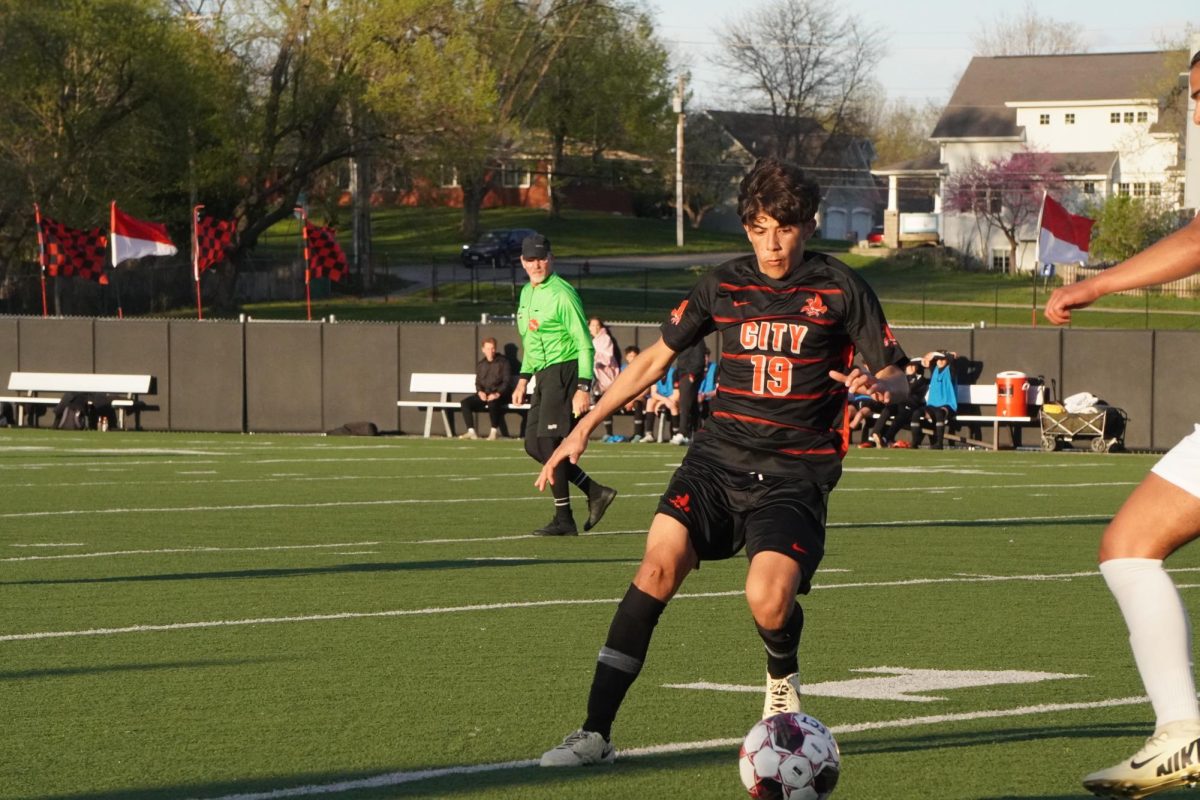The Three True Outcome Baseball Myth
October 14, 2022
The MLB playoffs are going on as I speak. My two favorite teams: the Giants and Twins (nor were they even close.) So to stay engaged in this playoff race I have chosen two teams in the playoffs: the Seattle Mariners and the Atlanta Braves. What do these three teams have in common? They play “fun” baseball that is not reliant on the three true outcome theory.
What does that mean? Let’s take the example of the New York Yankees. From August 2nd to August 20th the Yankees, Whom many had considered to be the best team in the MLB had a record of 3-14. To nobody’s surprise, Yankees fans went ballistic on anyone they could blame for this horrible skid from players who weren’t pulling their weight to their front office and general manager. But how did a team that was 69-34 going into the month of August and spending 250 million a year on players see their winning percentage drop off a cliff? The simple answer is that the Yankees scored barely any runs. Between the days of August 2nd and August 20th the Yankees scored only 45 runs. Nine of which came in a 12-9 loss to the Cardinals. Two of their three wins came by only one run, they hit .221 in the full month of August and their pitching wasn’t exactly stellar either with an ERA of 3.74. That is because of how they constructed their team.
Starting around the year 2019, analytics started to take over baseball. Computers crunched tons of data at super speed and measured everything from a team’s projected wins to what players teams should sign. In this turmoil, a philosophy emerged. It was called Three True Outcome Baseball. The idea was that after everything is said and done, a team’s success in baseball revolves around three stats: How many home runs you hit, how many hitters your pitchers strike out and how many hitters your pitchers walk. This is a bleak take on baseball as it removes most of the fun out of the game. Errors, bunts, stolen bases, pitching to contact, and good defense started to not matter anymore. Once this philosophy gripped baseball, it started to squeeze. Small-town teams wanted to adopt it as a way to get more bang for their buck and large-market teams wanted to use it to churn out a product and create marketable heroes to get fans to watch. As general managers started to build their teams around this idea, they saw success. The Twins hit the most home runs by a team in one season and the Dodgers haven’t been below a .600 win percentage since 2019. The thing is this team-building strategy DOES. NOT. WORK. IN. THE. PLAYOFFS. Time and time again, we have seen seemingly invincible three true outcome teams get clobbered in the playoffs by lesser teams. The Twins haven’t won a playoff game for 31 years (long before utilizing this strategy, but in their three playoff appearances with teams centered around home runs, strikeouts, and walks they still haven’t won a game much less a series.) The Dodgers have infamously choked two world series appearances in a row and have had good teams almost every year in recent memory, yet they still have only one World Series in the 80-game season in 2020.
The very idea of the game of baseball boiled down to strikeouts, home runs, and walks is simply foolish. Computers love it as in their eyes, (or lack thereof) there is no human error and even when they try to factor in human error (like baserunning mistakes, errors, passed balls, and all the mental errors that a player can make) there is never a real way to gauge it. This also doesn’t even factor in poor managerial calls, fan interferences, bad calls by an umpire, and all the other things that give baseball a soul. Much of the time though, this can be forgotten. The Dodgers won 106 games last year. The Yankees are on course to win over 100 games this year. Even with their horrible losing streak in August. The thing is, once the playoffs start, it doesn’t matter what your record is providing that you are in the playoffs. All of that work is simply to get into the playoffs. Granted, there are benefits to having a good team. Clinching a playoff spot early lets you rest your players and you are going to get a good seed and home-field advantage. When you take those things away, you’re going to have to win the divisional series, league series, and the World Series. In the playoffs, the pressure ramps up. That should go without saying but seriously. Baseball’s playoff environment is like no other. If baseball is a game of inches, in the playoffs, it is a game of half inches. Each base won is its own victory, each run a mountain that the other team has to climb to get back to your level. Each out is to be counted on the nail-bitten fingers of every fan. It is in this environment where three true outcome baseball dies.
For example, the latest World Series winners, the Atlanta Braves did not win it with home runs. They beat the Dodgers in the National League Championship Series with a more gritty style of baseball which got me interested in the playoffs again after my team was knocked out. To fully understand which this alternative strategy beats three true outcome baseball, let’s take a look at what factors won and lost the games in the National League Championship Series for the Braves and Dodgers.
Game 1: Braves: 3 Dodgers: 2 The Braves win because hustle plays from Eddie Rosario in the first, and Ozzie Albies in the ninth.
The Dodgers lost because they were unable to hit the Braves’ bullpen in the late innings.
Game 2: Braves: 5 Dodgers: 4. After trading home runs, the Braves win because of a hustle run scored by Eddie Rosario and a defensive miscue. The Dodgers lose because of said defensive miscue and a dubious pitching change and defensive substitution from their manager.
Game 3: Dodgers: 6 Braves: 5. The Dodgers win because of their explosive offense finally showing through and a timely 3-run home run by Cody Bellanger. The Braves lose because of not being able to respond to the Dodgers’ rally and because of their pitchers were overrun by the Dodgers’ offense.
Game 4: Braves: 9 Dodgers: 2. The only Braves win that wasn’t by 1 or 2 runs. The Braves win because of Eddie Rosario got 4 hits, scored 3 runs and had 4 runs batted in. The Dodgers lost because their bats were shut down by Braves’ pitching. An offense that scored the most runs in the National League that year went silent.
Game 5: Dodgers: 11 Braves: 2 The Dodgers win because of the aforementioned offense finally showing their home run power and 5 home runs from AJ Pollock and Chris Taylor. The Braves lose because their bats went quiet after scoring two in the first inning and their pitching giving up five home runs.
Game 6: Braves: 4 Dodgers: 2. The Braves win because of a three-run home run by Eddie Rosario and stellar relief work from AJ Minter, Tyler Matzek and Will Smith. The Dodgers lose because of their offense again turning lackluster numbers and being forced to pitch Walker Buhler on three days’ rest after scratching Max Scherzer from the start. One could further make the claim that the Dodgers’ lack of pitching longevity (a product of three true outcome baseball) lost them this game if the offense wasn’t to blame.
This series almost feels balanced. The Braves scored 28 runs against the Dodgers’ 25. The Braves batted .260 and the Dodgers batted .250. Each team had a blowout game where they either won or lost by a large margin. So why did the series only take six games to complete? I believe the key factor is that the Braves scored runs when they needed to and the Dodgers didn’t. It sounds so simple, right? It’s a concept that is not tangible. Numbers can try to display it but this idea of coming up in the clutch is a piece of baseball that is being forgotten. For example, Eddie Rosario’s dash from third to home on a single to bring the Braves within one created the opportunity to score a run. In the playoffs many times a team needs players to create opportunities like that. This is called a clutch gene and it is not familiar to three true outcome teams.
So as the MLB playoffs continue, the Twins or Giants are in so I am going to be looking for another team. A team that doesn’t rely on strikeouts, walks, and home runs to win. A team that will slay the three true outcome titans this offseason.




















































